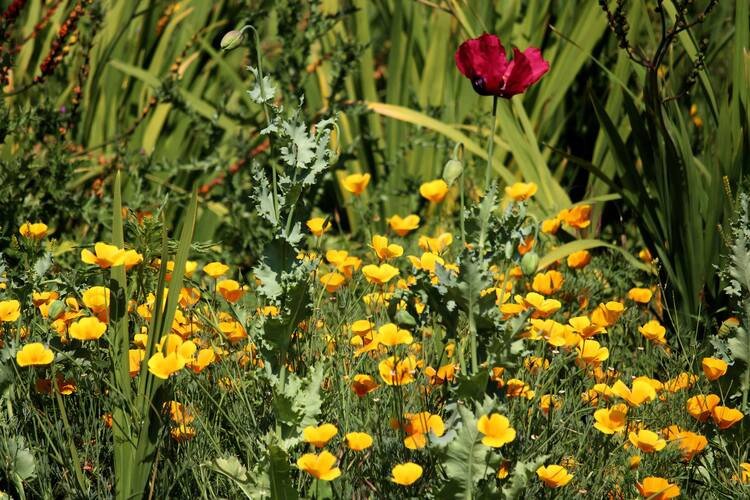
In the wake of the Grenfell Tower fire, discover how local residents turned to guerrilla gardening as a positive community project
By
The Grenfell Tower fire – which killed 72 people in June 2017 – was an event that left a deep mark upon the country. After reports revealed today indicate the Grenfell disaster resulted from a combination of governmental and company failures, as well as lack of strategy from fire brigades, the aftermath of the fire continues to significantly impact local residents and victims’ families.
With local charities such as One Vibe carrying out projects such as producing tribute songs to commemorate the tragedy – as well as other residents setting up advocacy groups for better housing services and co-designing health and wellbeing services to help those affected – another way that individuals are providing a means of support is through the act of guerrilla gardening.
Although sharing many of the same activities as traditional gardening – planting seeds, bulbs and flowers – guerrilla gardening is instead performed in public places without explicit permission. The practice exists in the law’s grey area – and whilst trespassing and damaging property are illegal, if those partaking follow rules including only planting native species, ensuring new plants do not cause disruption or public nuisance, then many local councils in the UK allow guerrilla gardening to go ahead.
Since around one in eight UK households do not have access to a garden, the rise of guerrilla gardening may also promote better wellbeing and mental health among local communities too.

‘We didn’t know to react to something of this scale,’ said local resident Tayshan Hayden-Smith, who had lost friends in the Grenfell disaster. ‘A lot of people turned to creative ways of expressing themselves.’
‘Following Grenfell, people congregated at a place called Maxilla, and it just so happened that I stumbled across a piece of land and wanted to tidy it up,’ Hayden-Smith continued. ‘One thing lead to another, and people came together and we started planting.’
Local plants shops and nurseries began to donate plants to the project, and more individuals were volunteering their time to support the efforts in a collaborative process. And in 2020, Tayshan, along with BBC presenter and horticulturalist Danny Clarke and local agriculturalist Ali Yellop, formed Grow2Know, a not-for-profit based in North Kensington, aiming to make horticulture more inclusive by inspiring and educating young gardeners across disused spaces in London. The organisation has since transformed green spaces in the local area – with Tayshan founding the Grenfell Garden of Peace too.

Grow2Know has also rebuilt disused green spaces at Morley College, planting a memorial tree for the disaster as well as a mosaic wall reminding visitors of the garden’s purpose. The charity also hopes to embark on projects in the future, including building a Calisthenics exercise garden and a collaboration with Steel Warriors – a company that uses steel from melted-down confiscated knives to build outdoor exercise gyms.
Tayshan hopes the projects he works on will help to support those affected, and continue to promote the importance of gardening in urban spaces for future generations to come.
‘In honour of the people that we lost, and to bring people together to bring solace and escapism, gardening can be an amazing thing to heal,’ said Hayden-Smith.
‘We need to educate our young people so that they can come up with solutions to the problems we’re facing, and also come at things from a more creative standpoint. Greening up London is very much part of that – if we can do it here, where it’s so built up, we can do it anywhere.’



